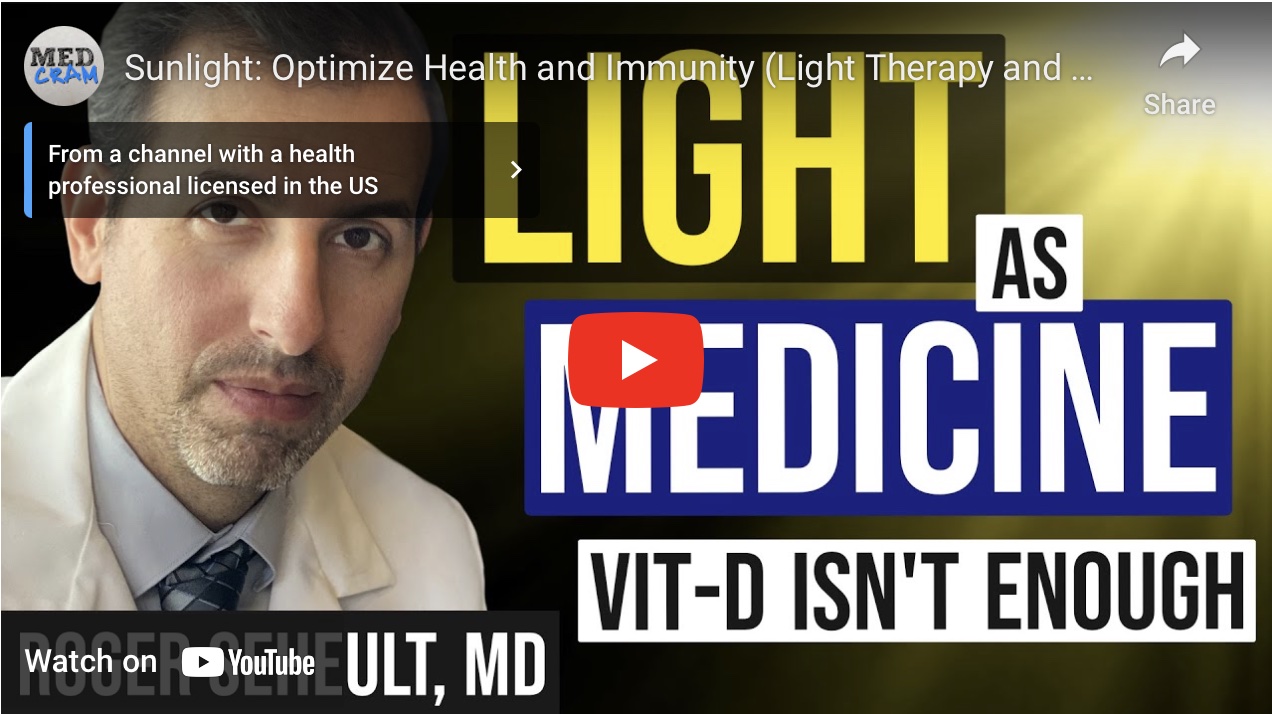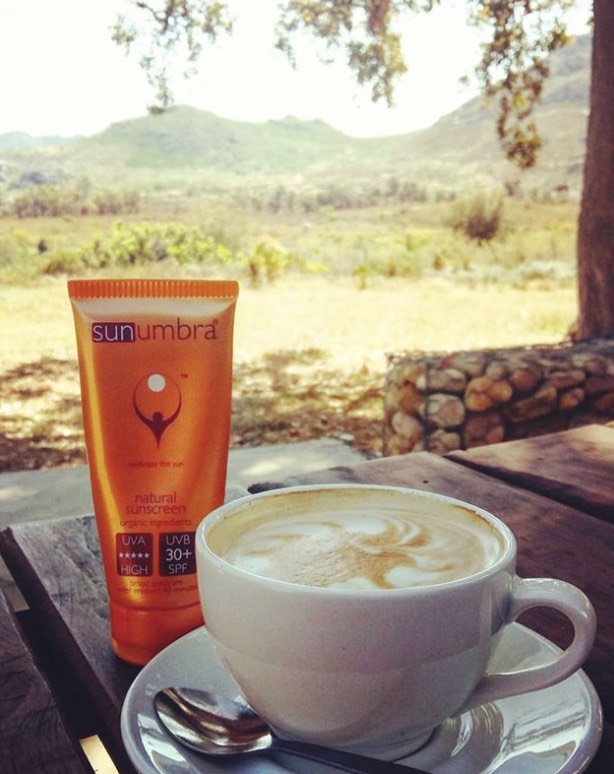Best Sunscreen for Dark Skin
- Home
- Best sunscreen for dark skin

Looking for the best sunscreen for dark skin, or a really dark skin tone, has always been a hard task! Lately however, improvements in sunscreen manufacturing options allow for a healthy choice that won’t leave you with that pasty white face.
But choosing healthy options still present some interesting choices as well as challenges.
Supply vs Demand of sunscreen for dark skin
- Supply as well as demand have enjoyed huge increases, specifically beneficial for dark skins, over these past few years
- Demand preference is for smooth application, absorbed into the skin without a trace of a white cast and leaving the skin beautifully moisturised.
- Most ‘new formulations’ providing the above contain synthetic chemicals
However, there are natural options that achieve not only optimum protection but a healing quality too

You really don’t have to use any potentially toxic synthetic chemicals to protect your skin.
Bad experiences with sunscreens for those with darker skin tones include:
- a pasty white or ashy cast left on the skin
- a heavy, thick, gloopy consistency
- sunscreen that remains sitting on top of the skin
Although the sunscreen manufacturing techniques today have evolved to be able to produce sunscreens that don’t serve this same experience, a healthy sunscreen choice requires a deeper understanding of how they work, for you, as well as the environment.
A tan is basically the pigment, melanin, in the top layer of our skin created to protect our skin from burning.
Those who have a dark skin with a high melanin content are blessed with a natural protection from the potentially destructive UV rays.
Some say this can equate to as much as an SPF (Sun Protection Factor) of 14, depending on the level of melanin and the depth of dark colour.
Choose Broad Spectrum for best sunscreen for Black Skin
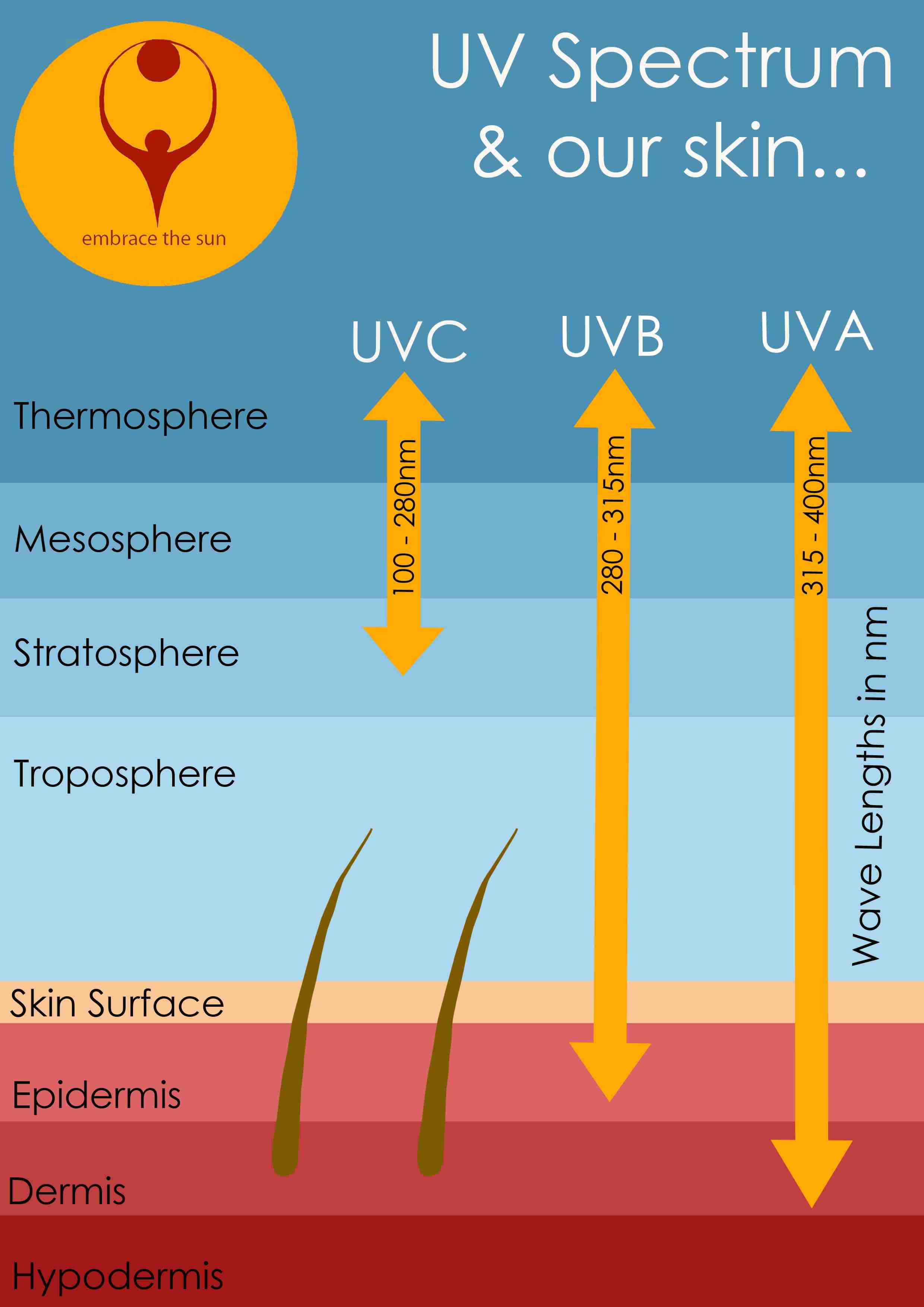
A sunscreen labelled “Broad Spectrum” provides protection from both UVA and UVB rays.
Zinc oxide as a sunscreen ingredient provides the best possible protection from both UVA and UVB but its also the one that can make your sunscreen leave a white cast if not formulated right.
A nano zinc oxide is refined in molecule size to enable no white cast but can also enable penetration of the skin which is not optimum at all!
A micronised zinc oxide provides a smaller molecule but not at the nano level and so not only allows for improved formulations and no white cast, but it allows the zinc oxide to remain on the top of the skin where it can function as it is meant to, in reflecting the UV rays.
Optimum for the environment are zinc oxide molecules that are not nano. The best Reef Safe sunscreens contain only zinc oxide as the active ingredient, but it is also imperative that the zinc oxide is non-nano.
Mineral vs Chemical for best sunscreen for dark skin?
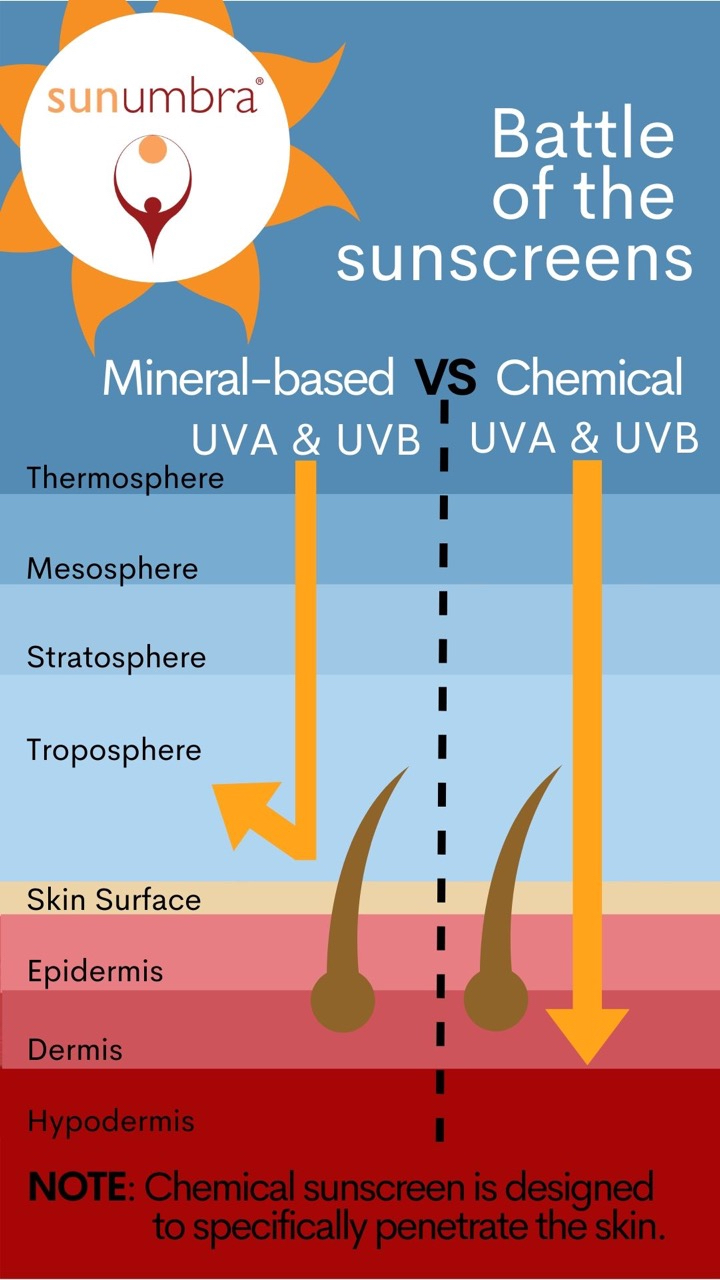
There are many chemical sunscreen ingredients used in formulations that allow for a non-white cast experience.
However, the very nature of all chemical sunscreens requires penetration of the skin, thereby alerting you to possible side effects?
These chemicals may have been proven to prevent sunburn, but not necessarily proven to be safe after penetrating your skin?
For those who suffer any kind of skin sensitivities, or for delicate skins like your young children, mineral sunscreens are the logical choice.
They sit on the surface of the skin and reflect the sun’s rays.
Most dermatologists will recommend a zinc oxide sunscreen as best choice for children as well as those with skin sensitivities.
For more details on toxic vs non-toxic sunscreen ingredients and what to avoid - see Chemicals to Avoid

Demand has been further influenced by some of the effects of the COVID lockdowns over the past few years, which has encouraged people to:
- become more knowledgeable about their health
- enjoy the outdoors, nature and the sunshine more
- increase Vit D levels by embracing the sunshine
- seek all things natural and organic
The crazy thing is that besides UV ray protection, there is a need to be able to absorb the UVB rays to allow the natural creation of Vitamin D. Our bodies do this naturally through a sort of photosynthetic process.
So, ideally your sunscreen needs high UVA protection and not that high UVB. Your dark skin tone has the ability to protect you from these UV rays but the counter effect is that you minimise your ability to create Vit D. So when outdoors in the sunshine, you actually want to allow your skin to absorb some of the UVB rays.
Antioxidants for best sunscreen for dark skin
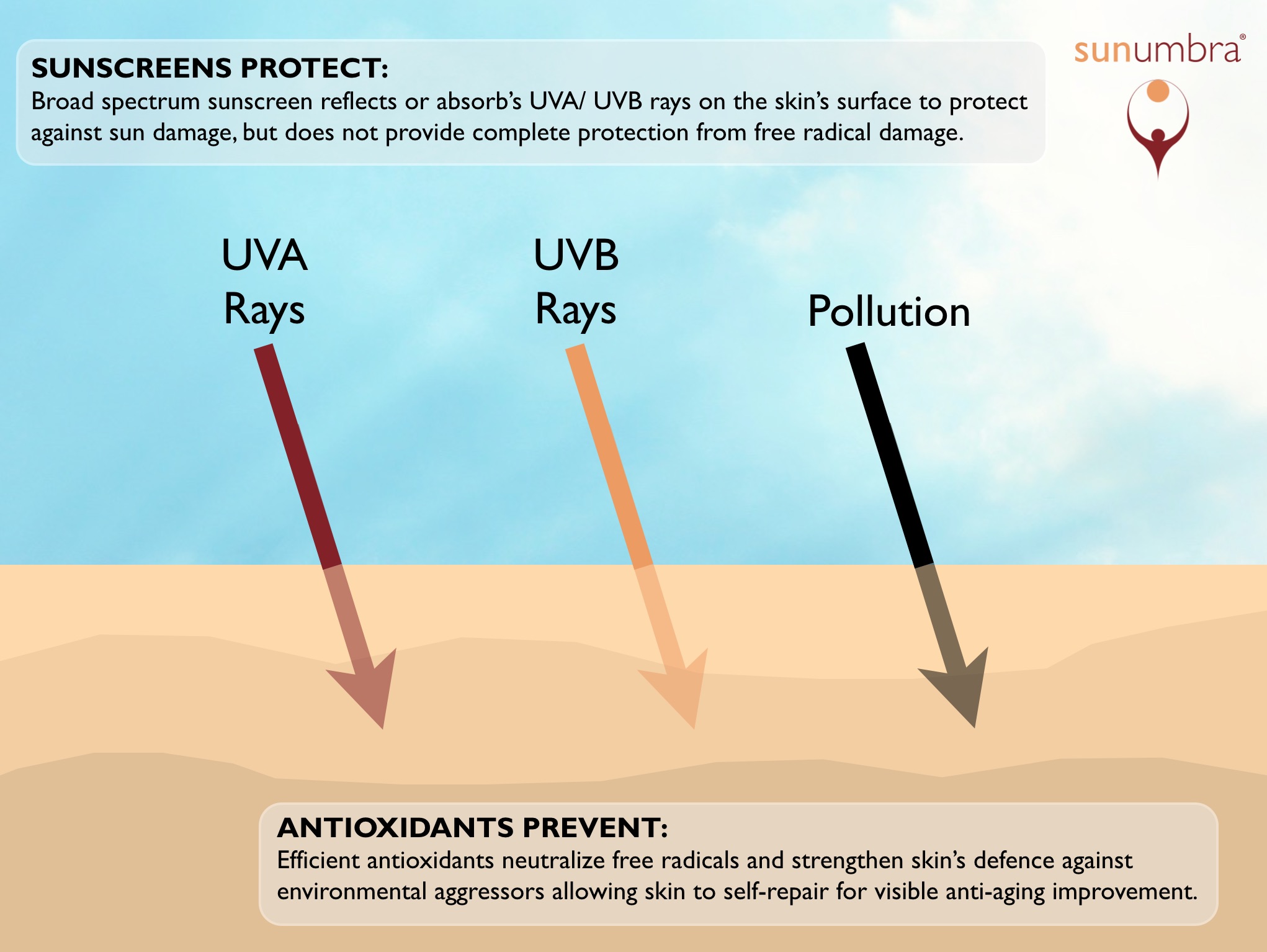
UV radiation causes damage to the DNA of our cells. Even to darker skin tones that have that natural defence in their higher melanin content.
Ideally, look for sunscreens that contain additional ingredients to boost the immune system against this damage, with such things as antioxidants. eg Vitamin C protects from UV damage as well as helping to prevent new pigmentation from forming. Antioxidants will further assist with other daily toxins encountered such as atmospheric pollutants and blue light from cell phones, laptops and such.
Skin healing and deeper skin nourishment can also be added through the choice of such things as the oil base. eg. baobab oil and other healing oils such as Red Raspberry seed oil.
UVA rays can exacerbate issues such as areas of hyperpigmentation reactions of melasma or freckles. This is one of the most common skin issues with those able to produce melanin really fast, such as those with a darker skin tone and especially those with a black or very dark skin colour.
Dr Maryam Zamani, a world renowned plastic surgeon and aesthetic doctor with a Middle Eastern skin colour says she personally identifies with being able to produce melanin easily when in the sun. “Hyperpigmentation is a common skin condition when the skin over produces the pigment melanin in certain areas, creating darker patches and an uneven skin tone. While all skin tones can develop these patches, it's more likely in people of colour.”
Sunscreen will help prevent this happening, but more so if there is additional Vitamin C, as it’s a great skin brightener so will decrease the appearance of hyperpigmentation over time. But many people turn to using a topical tyrosine inhibitor aimed at inhibiting the melanin pigment production.
Have a question yourself?
Do you have a question or perhaps wish to make a comment or even tell a story about an experience with sunscreen? Please share it! Others will benefit and may join the conversation.

